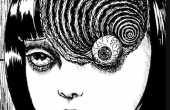Andi
andi | artist | economics student | anime enthusiast
Junior Contributor III
- Lurker
- Pssst
- Sharp-Eyed Citizen
- ?
- Articles
1 - Featured
1 - Comments
39
- Ext. Comments
18 - Processed
6 - Revisions
6
- Topics
6 - Topics Taken
1 - Notes
16
- Topics Proc.
34 - Topics Rev.
13
- Points
392 - Rank
X - Score
278
Latest Articles
Latest Topics
The draw of idle gamesOn flash game websites (such as Kongregate), there is an abundance of idle games, and every time I look there seem to be more. They seem to be very popular, despite the lack of gameplay (hence the ‘idle’). So what is the draw behind idle games, and why are they so prolific? Examples to consider could be cookie clicker, anti-idle, crush crush, etc.
|
Published | The power of words in The Book ThiefI’d be intrigued to see an analysis of themes in Markus Zusak’s ‘The Book Thief’. It covers a delicate time period in an engaging way, with strong themes of death, hope, and importantly, writing & stories. Obviously writing is a powerful tool, and the ways it is used to bring hope in such a situation perhaps holds implications (and analogies) to modern day issues – and how writing shapes people reactions to them. I’d love to see an analysis of this, and how it can be connected with today’s tenuous political climate.
|
Why do light novels have such long titles?Perhaps a less philosophical topic, but I’d love to see just a short article analysing various light novel titles. I’ve noticed a trend in which many of them have excessively long titles, some overly descriptive, but some not so much? I’d love to know why, or even just read about some common themes in them. There are plenty of examples to look at: Mondaiji-tachi ga Isekai Kara Kuru Sō Desu yo? (Mondaiji) (Problem Children are Coming from Another World, aren’t they?) Ore no Nōnai Sentakushi ga, Gakuen Rabu Kome o Zenryoku de Jama Shiteiru (Noucome) (My Mental Choices are Completely Interfering with my School Romantic Comedy)
|
The appeal of death game mangaA trope I’ve seen quite commonly in manga is that of the ‘death game’. Usually, a group of students wakes up in some closed-off area, with mysterious instructions to either kill each other, perform acts that might end in death, vote people to die, etc. I’d love to see an analysis of why this genre is so prolific. Perhaps a look at the themes it deals with, and how despite the large number of manga, there are still so many unique ideas. Possible example to look at could be: Ousama Game, Jinrou Game, Tomogui Kyoushitsu, Doubt, etc.
|
Representation of Transgender Youth in Hourou MusukoThe manga Hourou Musuko (Wandering Son) is about two transgender youths, and their struggles with adolescence. I’d be interested to read an analysis of the manga and how it handles these themes. Perhaps commentary on the influence of Japanese culture on the way the representation is handled, and also how times have changed in that respect too (as the manga began in 2002). |
Why is there such a strong dichotomy in support for the MCU?I’ve seen nothing but severely conflicting opinions on whether the Marvel films are going in a good direction or not. Audiences appear to be either diehard fans of the entire franchise, or completely disillusioned about the direction of the films. Despite this, there’s a continuously large following, and I’d be interested to know why.
|
Latest Comments
| The Horrifying Appeal of Junji Ito | |
It will be interesting to see where this kind of storytelling goes in the future! | The Emergence of New Media Writing |
I’ve never thought of this show as postmodern detectives, so this is an interesting take! | No Game No Life: Post-Modern Detectives |
You know I’ve never thought of Ouran as slice of life, so this is an interesting take! | Slice of Life Anime: Insane Sanity |
Its interesting to note how normalised the harem trope has become, even despite criticism. | Harem Anime and Manga - Expectations vs. Reality |
That point on stillness is definitely true. Miyazaki himself stated once that lots of Western film was scared of ’empty space’, and had to pack it full of action. Whereas Miyazaki was happy to allow these still moments, as they were more realistic, and emphasised other moments further. | The Magic and Artistry of Studio Ghibli's Films |
And this is only going to increase, given globalisation, I think! | Why Western Culture is Beginning to Embrace Anime |
This is super detailed, nice work! It kinda makes it obvious why this show is so popular, if it contains this much symbolism. | The Melancholy of Haruhi Suzumiya: The Journey of The Hero |

Thank you for your kind words! I’m glad you liked the article 🙂
I liked your article too (I can’t believe he has so many stories!).